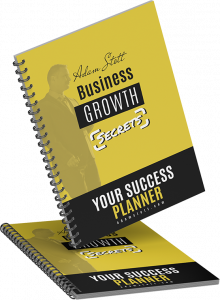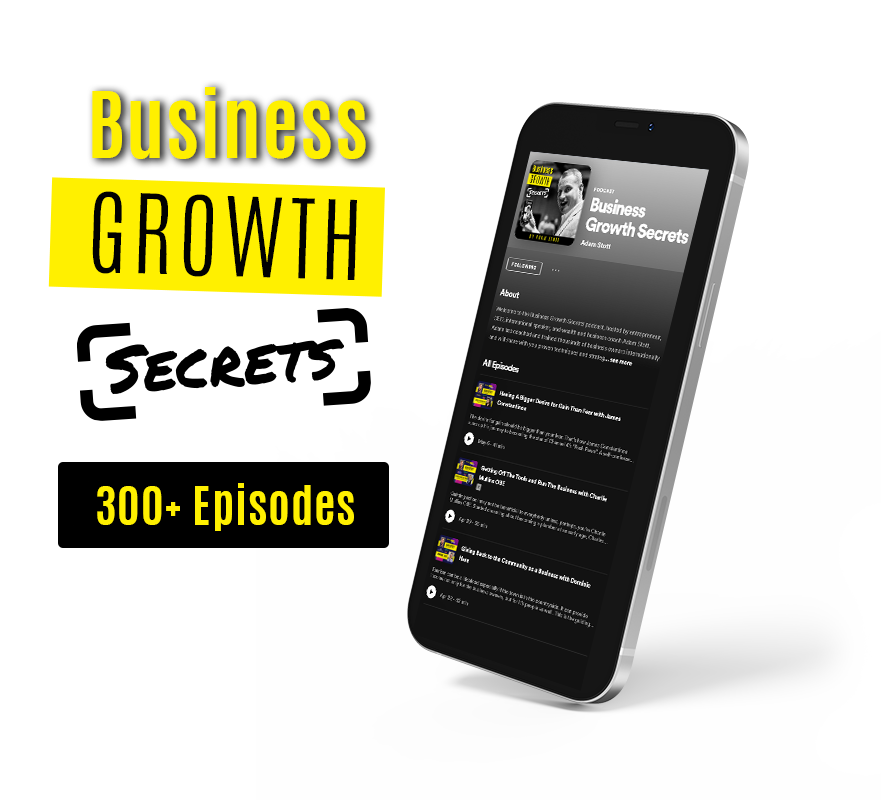Have you been building your business offline and are looking for more effective marketing strategies?
Maybe you’ve been looking to build your business by using face to face meetings or networking events, and they have worked up to a point.
However, maybe you’ve come to realise that there are more effective ways to grow your business and free up your time. Or perhaps the market and economy have changed so you’ve been forced to adapt quickly to survive.
We’re going to cover exactly how to take your business to a more scalable and less time-consuming model in this article. Offline methods still can be effective however many of them are out of reach for most businesses due to price.
They can also be quite time consuming and require lots of planning or preparation, whereas many online methods can be automated. One example is being able to send an email to reach hundreds or even thousands of people in one go. Online systems allow you to spend the same amount of effort but reach more people and ultimately, get more done!
One of the biggest hurdles people face is the technical side of transitioning their business online. Without an efficient system, it could take longer than it needs to, and be an incredibly stressful task. However, there are lots of resources on the Adam Stott YouTube channel with specific guidance on the best strategies to use.
Worried about being able to train your staff on these new processes?
You can create an online training portal using sites like Clickfunnels, and add in training videos or tutorials. This could save hours or even days doing in-person training sessions. It also means when a new member of staff begins you don’t need to sit and do training with them each time.
Being able to transition your business online will first require deconstruction of your business. One way to begin this process is to make a list of all of the daily tasks you or your team currently do to grow your business.
This may take time but it’s a great exercise to get clear on what exactly happens day-to-day. You may find some of these processes can be automated or even eliminated.
For example, how do you get clients or customers? If you are doing this face to face then you will want to do something similar online, such as via a Zoom or WhatsApp call. Phone calls are still very effective however for certain conversations, such as a consultation call or presenting a proposal, these are better using a ‘screenshare’ style call on Zoom.
In most cases, the one you should use is down to a matter of preference. If you’re more introverted you may not want to be on video calls all of the time. Regular phone calls or calls via WhatsApp (especially if working with international clients) are still a great way to communicate.
What matters is that you communicate in the most effective way to reach more people and advertise your business, without wasting time in the process. Relationship building online can still be just as powerful as in person. You also don’t need to spend time travelling to and from networking events or meetings to meet new people. Why not have a virtual coffee over a video chat?
Here’s a huge advantage for your business when it comes to marketing online. You can also track the effectiveness of your marketing easier by using the tools available to monitor your results. Why is tracking so important? You can’t improve on what you aren’t measuring.
Click here to get free business training from Adam Stott
What kind of tools are available?
Let’s start with Facebook, one that everybody knows. Business Pages on Facebook allow you to track metrics such as audience growth, engagement and retention.
Using tools like Facebook open up a whole new world when it comes to reaching more people, by using their advertising platform. You can literally get an advert in front of thousands of people in a matter of hours. You can also choose very detailed targeting so you only get relevant people looking at your offer.
That wouldn’t be possible to do via offline methods unless you happened to be speaking at an event in front of thousands of people. Needless to say, that wouldn’t be an everyday occurrence!
Then there are more advanced tools, such as Customer Relationship Management (CRM) Systems, which allow you to track leads and sales on a much deeper level. For example, being able to indicate how far along a lead is into the buying process.
This is much easier to do via an online system than on a notepad by pen and paper or a filing system. If you have multiple software you can use services such as Zapier to connect one service to another.
It’s not just limited to marketing either. Online finance tools such as Sage or Quickbooks allow you to do your bookkeeping, track incoming payments, create invoices and much more.
Best of all, these services don’t cost the Earth and virtually any business can get these up and running very quickly. Even for startups or SMEs these are easily accessible and could save you a fortune on bookkeeping costs.
Keeping your records digital is an easy way to find records later, and also to keep them safe (files can automatically be backed up on the Cloud with services like Google Drive). You can also share these with others and most importantly, stay organised.
To summarise, transitioning your business will take some getting used to. Some processes are easier than others, and although technology is a huge timesaver, you might still face some teething problems initially. It’s worth persevering with as in time you can have a process that gets your business more results with fewer headaches.
One final tip is to find a software or service that ticks all of the boxes, won’t increase in price and to only buy the level of software that you need. Some software providers will try to upsell you to buy the biggest packages; it’s worth double-checking if you need all of the features they are offering.
Free trials can seem very attractive but renewing subscriptions you don’t need or use could really add up over time. Make sure to keep an eye on which softwares you are regularly using and you aren’t doubling up on any. Simplicity is key in every area of your business.
Adam Stott. Founder, Big Business Events.
P.S. If you enjoyed this article, you may also enjoy this – Click here to get free business training from Adam Stott







